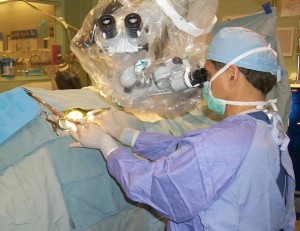 Brain benefits of exercising
Brain benefits of exercising
Regular physical exercise is good for us, no matter what our age. However, as we age, exercise becomes especially important. The benefitial effects of exercise on the heart, blood pressure, immune system and blood sugar levels have been known for a while. More recent research shows that regular physical exercise can have a strengthening impact on the structure of the brain, and hence improves brain function and reduces memory problems associated with aging.
The process of aging is often described as the accumulation of the results of choices made throughout our lives – for better or worse. As a neurosurgeon and neuroscientist, I have seen first hand the detrimental effects of poor life choices, including poor nutrition and lack of exercise, on the health of a human body and brain. While the body can be forgiving to neglect in the short run, it can certainly tell its own story if one does not take care of it in the longer run.
Making the right choices for our health is not always easy. Sometimes we lack knowledge as to what is best for us, other times we know what we “should” or “shouldn’t” do, but lack motivation.
So what are the proper exercise choices? And, what occurs in the brain during exercise that can have such profound health improving effects?
 Healthy Brains and Bodies
Healthy Brains and Bodies
Exercise, by design, causes mild trauma and damage to muscle fibers. The trauma leads the body to activate cells in an effort to repair the damage. This repair process leads to an increase in muscle fiber diameter, which translate to increase strength.
But this “controlled stress” of exercise is not limited to muscles – it extends to the brain as well. Both animal and human cell studies have shown that exercise causes new nerve cells to grow, called neurogenesis. Thus, the old tale that you can’t grow new brain cells is not true and in fact we have the potential to have improved brain function as we age.
So how does this occur? Our bodies can sense stress, whether physical, mental or both. During the stress of exercise, genes can be signaled to produce a certain protein called brain-derived neurotrophic factor (BDNF). BDNF acts on certain neurons (brain cells) in an effort to support the survival of existing neurons and encourage the growth and differentiation of new neurons. This is especially important since as we age there is negative stress, from chemicals in our diet and environment and additional free radical production, which can cause neuronal death and disease. The condition called Parkinson’s disease is associated with reduction of the neurons that produce the neurotransmitter – dopamine – and studies now show that exercise can protect these dopamine producing cells and reduce the incidence of this disease. BDNF also has the capacity to increase the number of neuron connections or synapses which can potentially improve memory and learning.
How much exercise should I do?
The general results of most studies to date indicate that those who are more active are less likely to experience cognitive decline. BDNF in humans was also showed to increase with the intensity of the exercise. Certainly, there are many considerations in how much exercise a person can do. Avoiding injury to muscles, ligaments and tendons is critical and as with any exercise program should be reviewed with your healthcare provider if you have an underlying medical condition or over 50 years of age. In a study in 2001 evaluating exercise in women in the San Francisco Bay area 65 years and old, researchers found that for each mile walked per day, there was 13% lower odds of development or progression of mental decline. And for every 1,700 calories spent actively exercising there was a 14% decline. Walking speed was not a significant factor:
Studies do indicate that the key to protection afforded by exercise only occurs with regular exercise. Higher levels of exercise, at least 3 times or more per week had a higher benefit and at intensities greater than walking had the greatest benefits. For ideal brain and body improvements at any age many researchers recommend adults should walk at least 10,000 steps each day (as measured by stride on a pedometer) or approximately 5 miles.
This is not an easy prescription to follow but it is clear that exercise can help the brain and body function better and longer through the prevention of disease. I would encourage you to “Just do it” as the famous sport shoe company has also told us. Do on those shoes and go for a walk – today!
Personal Statements of Dr. Maroon
“As a practicing physician and neurosurgeon, I have continually been called upon to “fix the car after it is broken. But what if we could keep things running smoothly for years to come?”
“I know that with better lifestyle choices, including proper exercise, avoidance of environmental pollutants, better nutrition, and improved stress management we can significantly improve the quality and potentially the length of our life. I practice this philosophy in my medical practice and my own life. My role is to help people to make educated choices that can allow them to be proactive for better health.”
Tri-State Neurosurgical Associates-UPMC
Administrative Oakland Office Address:
Presbyterian University Hospital
Department of Neurosurgery
Suite 5C
200 Lothrop Street
Pittsburgh, PA 15213
Phone: 1-888-234-4357
© 2013 Tri-State Neurosurgical Associates – UPMC




 Dr. Maroon received an athletic scholarship to Indiana University in Bloomington, Indiana where as an undergraduate, he was named a Scholastic All-American in football. Dr. Maroon has successfully maintained his personal athletic interests through participation in 9 marathons and more than 72 Olympic-distance triathlon events. However, his greatest athletic accomplishment is his participation in 8 Ironman triathlons (Hawaii – 1993, 2003, 2008, 2010, 2013; Canada – 1995; New Zealand – 1997; Germany – 2000), where he usually finishes in the top 10 of his age group. Recently, in July 2012 and 2013, he finished second and third, respectively, in his age group in the Muncie, Indiana half Ironman triathlon. In October 2013 he completed his 5th World Championship Ironman in Kona, Hawaii.
Dr. Maroon received an athletic scholarship to Indiana University in Bloomington, Indiana where as an undergraduate, he was named a Scholastic All-American in football. Dr. Maroon has successfully maintained his personal athletic interests through participation in 9 marathons and more than 72 Olympic-distance triathlon events. However, his greatest athletic accomplishment is his participation in 8 Ironman triathlons (Hawaii – 1993, 2003, 2008, 2010, 2013; Canada – 1995; New Zealand – 1997; Germany – 2000), where he usually finishes in the top 10 of his age group. Recently, in July 2012 and 2013, he finished second and third, respectively, in his age group in the Muncie, Indiana half Ironman triathlon. In October 2013 he completed his 5th World Championship Ironman in Kona, Hawaii.